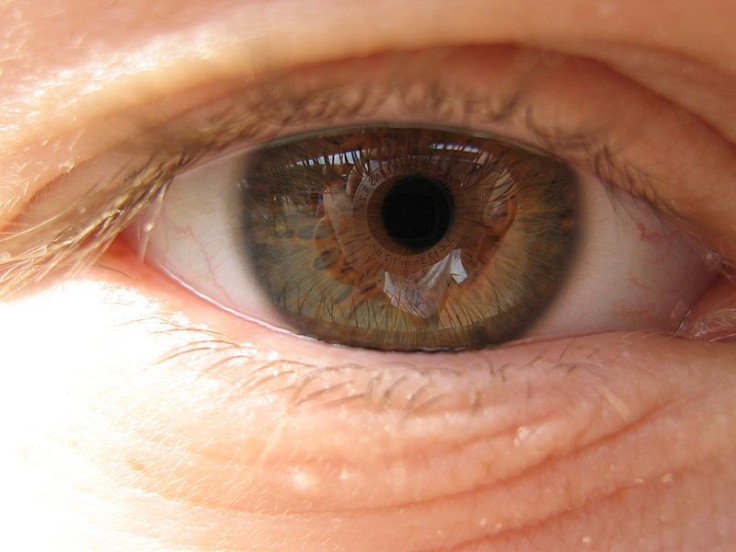Macular Degeneration: Nutritional Supplement Recommendations Clarified By The National Eye Institute

The National Eye Institute (NEI) recently revisited its original recommendation of nutritional supplements for treating age-related macular degeneration (AMD) - daily high doses of vitamins C and E, beta-carotene, zinc, and copper - to test claims that it might be improved. AMD, which causes vision loss and sometimes blindness, currently affects two million Americans and places an additional eight million at risk.
NEI concluded that there was no overall additional benefit from adding omega-3 fatty acids or a 5-to-1 mixture of lutein and zeaxanthin to the original formulation. However, investigators did find some benefits when they subtracted beta-carotene.
"Removing beta-carotene simplifies things," said Wai T. Wong, M.D., Ph.D., chief of the NEI Neuron-Glia Interactions in Retinal Disease Unit and a co-author of the report. "We have identified a formulation that should be good for everyone regardless of smoking status," he said. Several past studies have linked taking high doses of beta-carotene with a higher risk of lung cancer in smokers.
The original Age-Related Eye Disease Study (AREDS), which concluded in 2001, established that daily high doses of vitamins C and E, beta-carotene, and the minerals zinc and copper - called the AREDS formulation and recommended by the American Academy of Ophthalmology - can help slow the progression of advanced AMD. Participants with AMD who took the AREDS formulation were 25 percent less likely to progress to advanced AMD over the five-year study period, compared to participants who took a placebo.
An incurable disease, AMD breaks down cells in the layer of tissue called the retina in the back of the eye that provides sharp central vision, which is necessary for tasks such as reading, driving, and recognizing faces.
In 2006, the NEI launched AREDS2. This second five-year study was designed to test whether the original AREDS formulation could be improved by adding omega-3 fatty acids, lutein, and zeaxanthin, removing beta-carotene, or reducing zinc. The study also examined how different combinations of the supplements performed.
Participants in the recent study took one of four AREDS formulations daily for five years. The original formulation included 500 milligrams vitamin C, 400 international units of vitamin E, 15 milligrams beta carotene, 80 milligrams zinc, and two milligrams copper. Other groups took the original formulation with no beta-carotene, low zinc (25 milligrams), or no beta-carotene and low zinc. Participants in each group also took one of four additional supplements or combinations: lutein/zeaxanthin (10 milligrams/2 milligrams), omega-3 fatty acids (1,000 milligrams), lutein/zeaxanthin and omega-3 fatty acids, or placebo.
Along with the beta-carotene benefit, analysis of AREDS2 showed that participants with a low dietary intake of lutein and zeaxanthin pre-study who took an AREDS formulation with lutein and zeaxanthin during the study were about 25 percent less likely to develop advanced AMD compared to participants with similar dietary intake who did not take lutein and zeaxanthin.
Even before completion of AREDS2, manufacturers began marketing supplements based on the study design. Omega-3 fatty acids are produced by plants, including algae, and are present in oily fish such as salmon. Lutein and zeaxanthin are carotenoids, a class of plant-derived vitamins that includes beta-carotene; both are present in leafy green vegetables and, when consumed, they accumulate in the retina.
"Millions of older Americans take nutritional supplements to protect their sight without clear guidance regarding benefit and risk," said NEI director Paul A. Sieving, M.D., Ph.D. The study is published online today in the Journal of the American Medical Association. "This study clarifies the role of supplements in helping prevent advanced AMD," said Sieving.
In a separate study, the AREDS2 Research Group evaluated the effect of the various formulas on cataract, a common condition caused by clouding of the eye's lens that affects about 24.4 million Americans. As reported in 2001, the original AREDS formulation does not protect against cataract.
In AREDS2, none of the modified formulations helped reduce the risk of progression to cataract surgery, although a subgroup of participants with low dietary lutein and zeaxanthin gained some protection. "Regular high doses of antioxidant supplements do not prevent cataract," said Emily Chew, M.D., deputy director of the NEI Division of Epidemiology and Clinical Applications and the NEI deputy clinical director. The AREDS2 cataract study was published online today in JAMA Ophthalmology.
Published by Medicaldaily.com



























